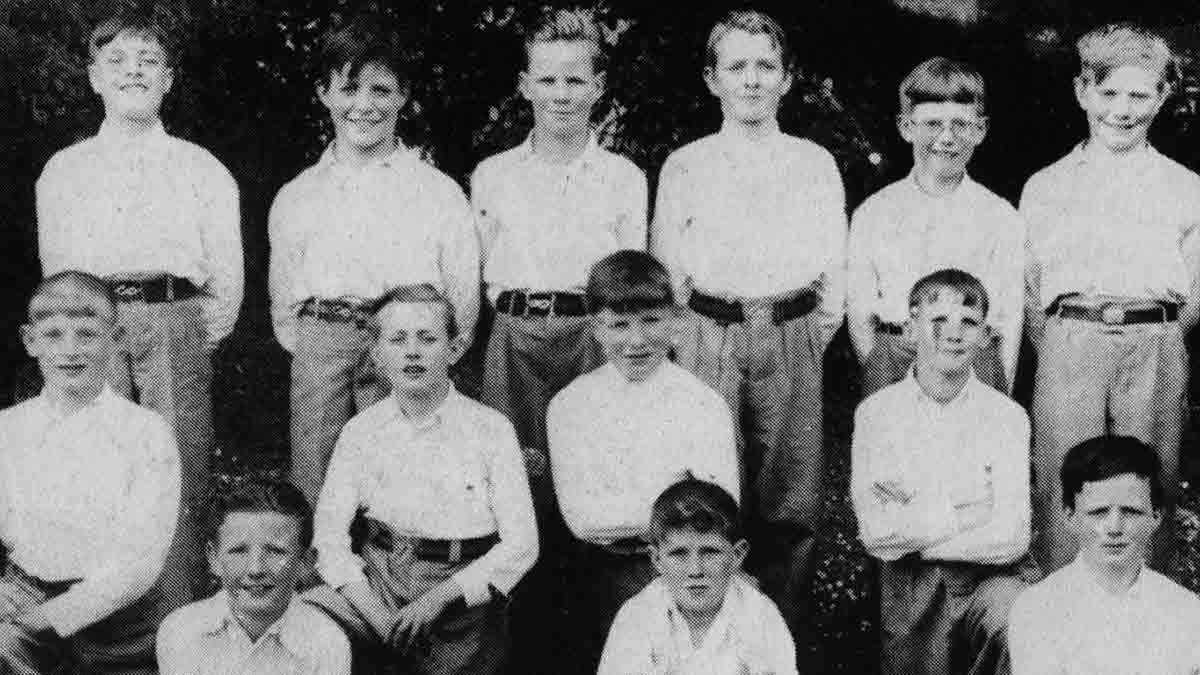“She hit me with the heel of her shoe”
BY JOHN FITZGERALD
Continuing the story of corporal punishment in an Irish town in the 1930s and 40s: I also interviewed Jimmy Walsh of Mill Street, Callan. Jimmy told me he was punished severely by a nun at the local convent.
In addition to words of praise for some of the nuns, he had a vivid image of the day in 1940 when a Mercy Sister reprimanded him for some minor weakness in his homework. She gave him a hiding he never forgot.
She flogged him on the legs, and as he tried to dodge her blows, she proclaimed triumphantly: “I’ll make you dance…I’ll make you dance!”
When he got home, local woman Sally Holden was sitting by the fireside chatting to his mother. Seeing Jimmy trudge disconsolately into the house, she turned to Mrs. Walsh with a worried look and asked: “What are all those blue marks on his legs?”
Jimmy explained that such chastisement was common at all levels of schooling at the time. At the Academy in Green Street, the lay teachers struck him and the other pupils with sticks, leathers, and fists. The boys had a serious dislike of a teacher who’d sown coins into his leather to enhance its punishment potential.
The girls were disciplined too. I spoke to a woman who attended a national school within Callan parish in the 1940s. Her teacher resorted to slapping with a long hazel stick at the slightest provocation. Any failure drew a sharp rebuke, followed by however many slaps she deemed appropriate.
But it wasn’t the slaps the girls feared most, according to this former pupil: The teacher in question also used the heel of one of her shoes to beat the pupils. The woman recalled: “She’d tear around the classroom with a shoe in her hand, hopping sometimes on one foot to avoid getting a splinter from the floorboards, and she’d lash out at whichever girl was giving her grief.
“She’d hit us on the head, the hands, the shoulders, the back…any part of us that she could reach with the heel. And by God it hurt. Many of us were covered in heel marks from that shoe. She was some bitch, that one.”
A female teacher in another primary school in the Callan district had a habit of grabbing girls by the hair and literally tearing it out. Girls with embarrassing bald patches abounded in the school. Each evening they went home with tufts of hair in their schoolbags. Eventually, the mother of one girl complained to the parish priest, who asked the teacher to desist from the practise.
There were, of course, both religious and lay teachers who opted not to avail of corporal punishment. These far-seeing educators in Callan and elsewhere realised that beating the living daylights out of children and teenagers wouldn’t necessarily advance their education and might even impede it. They refrained on principle from accepting the “weapons” their superiors offered them to control and regulate their classes.
I have decided not to name these enlightened teachers, as to do so would identify by a process of elimination the ones who did “get physical” in the classroom!
The majority of past pupils of Callan schools seem, from what I have been able to gauge from speaking to a cross-section of then, to forgive their teachers. Or they at least downplay the severity of the punishment.
At the various commemorative functions organised by former pupils over the years, many of them have joked about the slaps and beatings the nuns, brothers, or lay teachers gave them.
“Sure the divil a harm it ever did us” is a common refrain one hears at these get-togethers. A few past pupils are less magnanimous, and their trips down memory lane take them to a place they would sooner forget than forgive.
To again quote Sean Holden’s comment on life in the 1930s and 1940s: “Different times, boy… different times.”
(What happened in the industrial schools and Magdalene Laundries was on another level altogether. I deal with Ireland’s institutional era in a novel titled Escape from Grievous Faults.)




















